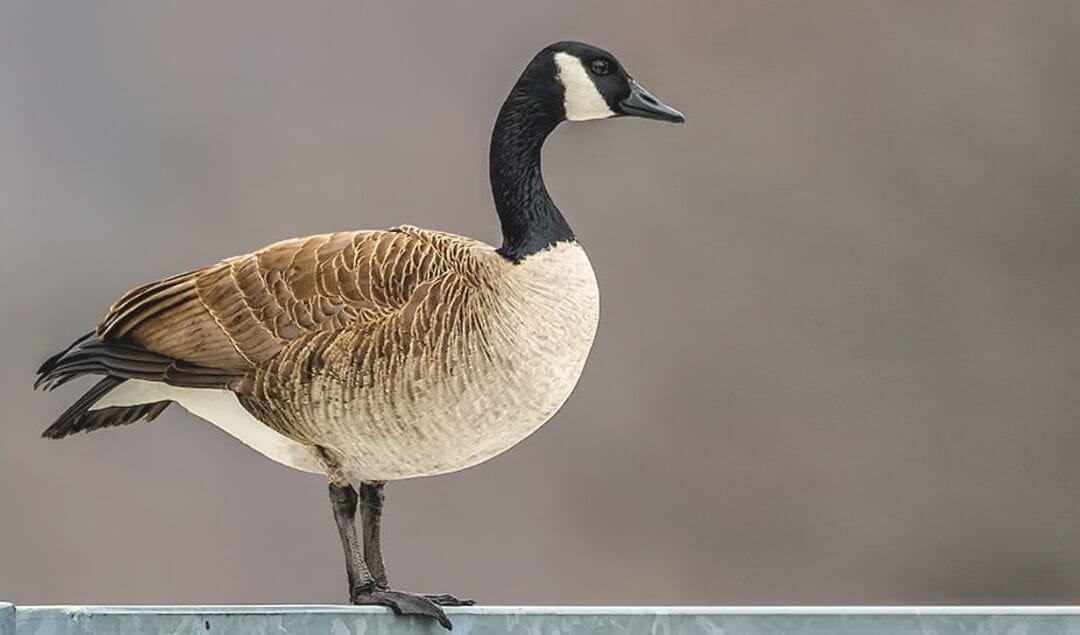
by Pigeon Patrol | Nov 15, 2020 | Animal Deterrent Products, Bird Deterrent Products, Bird Law, Bird Netting, Bird Spikes, Columbidae, Doves, history of pigeons, Pigeon Control, Pigeon Droppings
Looking for more information about which birds are considered pests? Read on to learn more!
The Birds That Are Pests
There are six types of birds found in Canada can be classified as nuisance pests, which are the house sparrows, starlings, pigeons, woodpeckers, gulls, and Canada geese
The house sparrow is a bird of the sparrow family Passeridae, found in most parts of the world. It is a small bird that has a typical length of 16 cm and a mass of 24–39.5 g. Females and young birds are coloured pale brown and grey, and males have brighter black, white, and brown markings
Starlings are small to medium-sized passerine birds in the family Sturnidae. The name “Sturnidae” comes from the Latin word for starling, sturnus. Many Asian species, particularly the larger ones, are called mynas, and many African species are known as glossy starlings because of their iridescent plumage
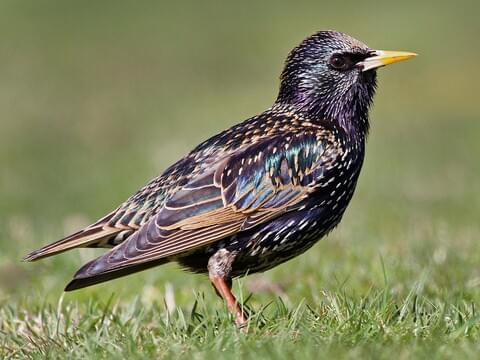
Pigeon
Next on the list is the Pigeon, Also known as the rock dove. Pigeons are known for causing diseases and damage due to their droppings. The droppings trigger human slips and falls as well as accelerating the aging of structures and statues.. Other pests that live on these birds are fleas, lice, mites, ticks and more. Pigeons vary in color but most of them are bluish gray with 2 black bands on the wing and black tip to the tail.
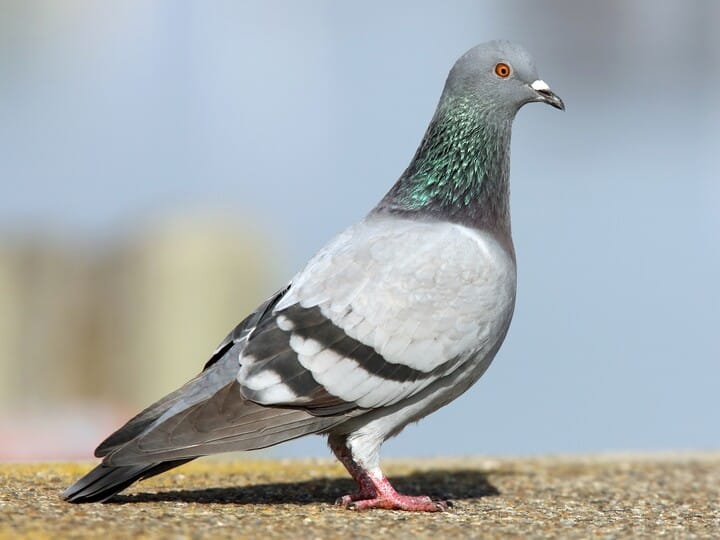 Source
Source
Woodpeckers
Woodpeckers are part of the family Picidae, that also includes the piculets, wrynecks, and sapsuckers. Members of this family are found worldwide, except for Australia, New Guinea, New Zealand, Madagascar, and the extreme polar regions. A woodpecker will attack for many reasons. The attack can be for food, shelter or to attract a mate. The reasons for attack include finding insects for food, often carpenter bees, or for a nest cavity or roosting site, or for other social reasons.
Gulls
Gulls, or colloquially seagulls, are seabirds of the family Laridae in the suborder Lari. They are most closely related to the terns and only distantly related to auks, skimmers and even more distantly to waders
Canada Geese
The Canada goose is a large wild goose species with a black head and neck, white cheeks, white under its chin, and a brown body. It is native to arctic and temperate regions of North America, and its migration occasionally reaches northern Europe
How to identify Birds
Canadian bird pests vary in length, overall size, and colouration. The smallest pest bird species, house sparrows are approximately 14 to 18 cm long with a wingspan of 19 to 25 cm. At the other end of the spectrum, Canada geese boast a wingspan as long as 182 cm and range from 90 to 120 cm in length. Some of the most common bird colourations include shades of grey, white, black, and brown. Pigeons, which rank as arguably the most colourful bird pest, may appear with streaks of light blue, green, lilac, peach, and various other shades.
Signs of an infestation
Birds are not exactly stealthy creatures, and infestations usually become evident with the increased presence of adult birds, the frequent occurrence of chirping and other noises, the sighting of nests, and an increased quantity of droppings in the area.
Birds Removal
Modifying the surrounding environment can aid property owners in ridding buildings of nuisance birds. Netting or spike strips can be strategically positioned to deter or prevent birds from landing and nesting. Noise devices, such as generators that mimic the sounds that natural predators make, work best in agricultural settings, while visual scare tactics are effective in the short term or when paired with other prevention and exclusion techniques. For particularly aggressive birds and those protected by the Migratory Bird Treaty Act, call a fully licensed pest control professional to take care of the problem legally and effectively.
How to prevent Birds from invading
Monitor water accumulating at likely nesting sites, fix any broken or deficient drainage systems, cover outdoor garbage containers tightly, eliminate any notable sources of food.
Habitat, Diet, and Life Cycle
Habitat
Many of the pest birds in Canada are migratory species which fly south when the temperatures approach the freezing point. Many pest birds have a widely distributed population and benefit greatly from the development of cities and the distribution of human populations. Some species construct nests and raise their young in elevated areas, while others nest on the ground. Birds generally prefer to live in the immediate vicinity of a water source but have no trouble flying reasonable distances to collect food. Most species adapt well to various surroundings.
Diet
Pest birds mainly eat fruits, seeds, grains, and insects. Many species live in close proximity to people and often feed on human food like bread, popcorn, peanuts, cake, discarded restaurant fare, and similar items. Much to the dismay of farmers, pest birds frequently target crops and livestock feed, as well. Gulls and Canada geese in particular maintain special dietary preferences. Gulls often feed on fish, rodents, and carrion, while the geese mostly consume plants like cattails, clover, and grass.
Life Cycle
Without exception, birds mate and rear their young in the spring and summer months. On average, pest birds produce one or two broods each year. House sparrows, however, can produce as many as five generations annually. Most birds require an incubation period of two weeks, though the eggs of both Canada geese and gulls require nearly a month of incubation. Newly hatched birds then leave the nest after an average of two to four weeks of preening. Depending on a variety of factors, nuisance birds typically live between 2 and 10 years.
Commonly Asked Questions
How worried should I be about birds?
Pest birds can carry parasites like fleas, mites, and ticks, and transmit diseases to humans and livestock. Pigeon excrement often contains the fungal diseases histoplasmosis and cryptococcosis, which are especially dangerous to people with compromised immune systems.
Many bird species are noisy and can damage buildings and equipment. Not only are pest bird droppings unsightly, they can stick to buildings, potentially eroding the structure.
Pest birds can also create drainage issues and fire hazards by nesting in the small crevices, drains, and gutters of buildings. Many bird species are also aggressive towards humans or native bird populations.
However, dealing with pest birds can be difficult, due to the Migratory Bird Treaty Act, which protects certain species from trapping and relocation practices. Any attempt to remove a pest bird must also comply with the Fish & Wildlife Act.
While netting, spike strips, noise devices, and visual scare tactics may be valid options, often only a professional, licensed pest control service can meet the regulatory standards required when it comes to removing and keeping away pest birds.
About Pigeon Patrol:
Pigeon Patrol Products & Services is the leading manufacturer and distributor of bird deterrent (control) products in Canada. Pigeon Patrol products have solved pest bird problems in industrial, commercial, and residential settings since 2000, by using safe and humane bird deterrents with only bird and animal friendly solutions. At Pigeon Patrol, we manufacture and offer a variety of bird deterrents, ranging from Ultra-flex Bird Spikes with UV protection, Bird Netting, 4-S Gel and the best Ultrasonic and audible sound devices on the market today.
Contact us at 1- 877– 4– NO-BIRD, (604) 585-9279 or visit our website at www.pigeonpatrol.ca
Bird Gone, Pigeon Gone, Seagull Gone, Pigeon problems, 1-877-4NO-BIRD, 4-S Gel, Bird Control, Pigeon Control, bird repellent,, sonic bird repellent, stainless steel , bird spikes Vancouver, Ultra Sonic Bird Control, Bird Netting, stop aggressive pet birds Canada bird deterrents, Pigeon Pests, B Gone Pigeon, Pigeon Patrol, pest controller, pest control operator, pest control technician, Pigeon Control Products, humane pigeon, pigeon deterrents, pigeon traps, Pigeon repellents, stop aggressive pet birds Sound & Laser Deterrents, wildlife control, raccoon, skunk, squirrel deterrent, De-Fence Spikes, Dragons Den, Canada bird spikes, Canada pigeon, pigeon control, pigeon patrol, pigeon. destroy pigeons, crow, starling, Pigeon Habitat, Pigeon identifications, pigeon myths, stop aggressive birds, stop aggressive pet birds
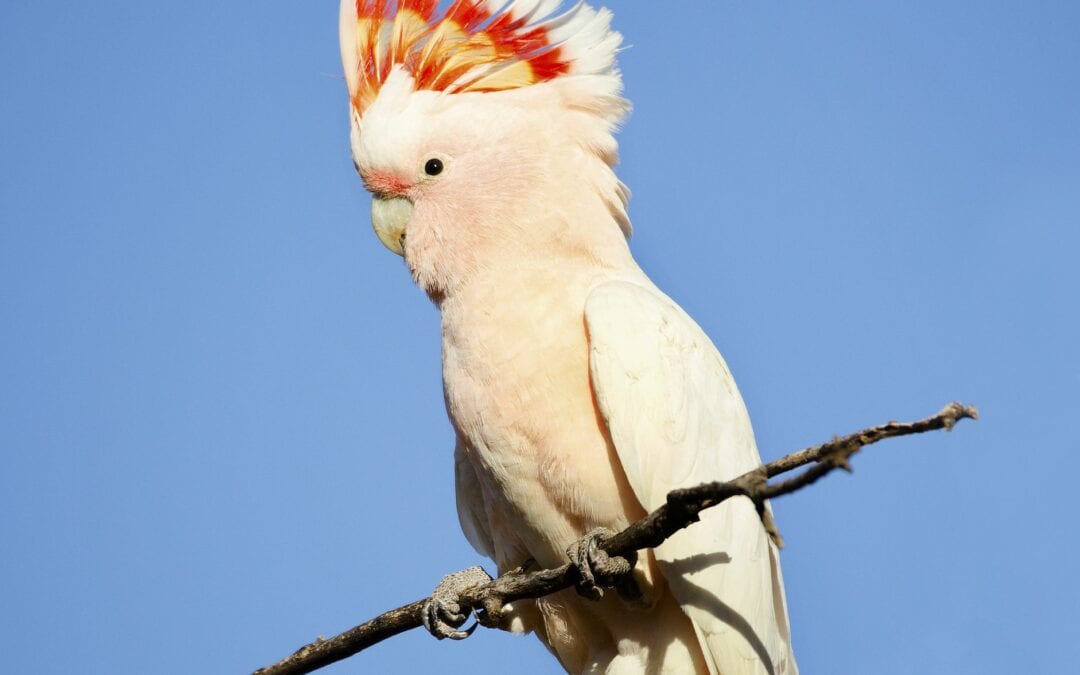
by Pigeon Patrol | Nov 15, 2020 | Animal Deterrent Products, Bird Deterrent Products, Bird Netting, Bird Spikes
Wondering which birds are the smartest of them all? Then keep on reading!
The Smartest Birds
When you think about all of the animals in the world, you quickly realize that birds are, in fact, amongst some of the most intelligent creatures we have on Earth. Although there are more than 10,000 bird species worldwide, only a handful of them have made the list for extremely talented and incredibly intelligent. So who are these super intelligent feathered friends? It’s not easy to really say who is number one or number 2, or to choose the smartest and brightest of them all. But this blog gives you an overview, of what birds have made the top of the list in most bird intelligence studies around the world. So sit back and be amazed how smart some of our feathered friends really are!
Crows

Crows are black birds known for their intelligence and adaptability, and for their loud, harsh “caw.” They also have a reputation for damaging crops; however, their impact may be less than previously thought. The genus Corvus comprises crows, ravens and rooks. These birds are all part of the Corvidae family, which includes jays, magpies and nutcrackers. When it comes to intelligence, Crows should probably be at the top of the list, or close to it. Many scientists think that crows just may be among the most intelligent birds on earth. This intelligent rating is based on their ability to solve problems, make tools as well as consider both future events and other individuals’ states of mind. In addition to Crows making customize tools, they understand causality, can reason, count up to five and remember human faces. In Israel, Wild Hooded Crows actually use bread crumbs to catch fish. In Norway and Sweden they have been seen dragging fishing lines out of water to get the hooked fish. They are second only to humans in intelligence — even smarter than apes in some research tests. And what’s also impressive is that their brain-to-body weight ratio is equal to that of the great apes and cetaceans (whales, dolphins, porpoises) and just slightly lower than in humans.
Kea
Next on the list of smartest birds in the world is the Kea. The kea is a species of large parrot in the family Nestoridae found in the forested and alpine regions of the South Island of New Zealand. About 48 cm long, it is mostly olive-green with a brilliant orange under its wings and has a large, narrow, curved, grey-brown upper beak.The Kea has been enlisted by many as the worlds most intelligent bird among top ten intelligent birds. The Kea is found in New Zealand and it is basically a parrot. This extremely intelligent bird knows how to be very crafty when it comes to finding or stealing food.The troublesome native parrot, is known as the ‘Clown of the Alps’ and can cause havoc with many things (especially cars) and has proved to be as clever as some of the smartest animals on the planet. In some intelligence tests carried out by a Canterbury University masters student, kea outscored gibbons – and anthropoid apes which are part of the primate family.

Jays
Another bird we have up in our list are the Jays.
Blue Jays are one of the smartest birds you’ll see visiting your feeder. As for Blue Jays, there’s still much more to learn and discover, as we don’t know the full extent of their intelligence. However, research so far suggests the Blue Jay is no “birdbrain.” Here are three things we know about Blue Jays that prove their smarts:
Blue Jays can imitate the sounds in their environments, and one thing they mimic is hawk calls. Researchers believe they do this to warn other jays in their family and flock that danger is near. However, Blue Jays don’t shy away from using this ability to their advantage. Some backyard birders have caught jays making this sound to scare off songbirds at the feeder so they can get the feeding station to themselves!
So far, no one has documented Blue Jays using tools in the wild. However, in at least one laboratory setting, Blue Jays were seen ripping pieces of the newspaper lining in their cages, using these strips to help them access out-of-reach food pellets. This suggests when they have the right motivation, Blue Jays have an aptitude for tools. Many Jays avoid eating ants because they taste, well, awful. That bitter taste comes from the ant’s self-defense strategy: When it detects a threat, a gland releases a noxious formic acid that covers the ant’s body. However, Blue Jays found a workaround. They carefully rub the insect on their feathers, a process that birders refer to as anting, to remove the bitter-tasting substance before eating.

Cockatoos
Last on our list of smartest birds are the Cockatoos
A cockatoo is any of the 21 parrot species belonging to the family Cacatuidae, the only family in the superfamily Cacatuoidea. Along with the Psittacoidea and the Strigopoidea, they make up the order Psittaciformes.
Cockatoos are recognizable by the showy crests and curved bills. These extremely social birds have endearing personalities and great speaking abilities. As a part of their extreme intelligence, is their ability to imitate a wide variety of sounds and speech. But more than that, when scientists performed intelligent tests with the captive bred Goffin’s cockatoo they learned they are able to actually resist the temptation of eating a food item put in front of them in order to trade it for a better reward later.
This reaction mirrored a famous experiment in the U.S. 40 years ago when nursery school children were put in a room and given a marshmallow, biscuit or pretzel stick. They could either eat it right away or wait 15 minutes and get an extra treat. On average they are larger than most other parrots.

About Pigeon Patrol:
Pigeon Patrol Products & Services is the leading manufacturer and distributor of bird deterrent (control) products in Canada. Pigeon Patrol products have solved pest bird problems in industrial, commercial, and residential settings since 2000, by using safe and humane bird deterrents with only bird and animal friendly solutions. At Pigeon Patrol, we manufacture and offer a variety of bird deterrents, ranging from Ultra-flex Bird Spikes with UV protection, Bird Netting, 4-S Gel and the best Ultrasonic and audible sound devices on the market today.
Contact us at 1- 877– 4– NO-BIRD, (604) 585-9279 or visit our website at www.pigeonpatrol.ca
Bird Gone, Pigeon Gone, Seagull Gone, Pigeon problems, 1-877-4NO-BIRD, 4-S Gel, Bird Control, Pigeon Control, bird repellent,, sonic bird repellent, stainless steel , bird spikes Vancouver, Ultra Sonic Bird Control, Bird Netting, stop aggressive pet birds Canada bird deterrents, Pigeon Pests, B Gone Pigeon, Pigeon Patrol, pest controller, pest control operator, pest control technician, Pigeon Control Products, humane pigeon, pigeon deterrents, pigeon traps, Pigeon repellents, stop aggressive pet birds Sound & Laser Deterrents, wildlife control, raccoon, skunk, squirrel deterrent, De-Fence Spikes, Dragons Den, Canada bird spikes, Canada pigeon, pigeon control, pigeon patrol, pigeon. destroy pigeons, crow, starling, Pigeon Habitat, Pigeon identifications, pigeon myths, stop aggressive birds, stop aggressive pet birds
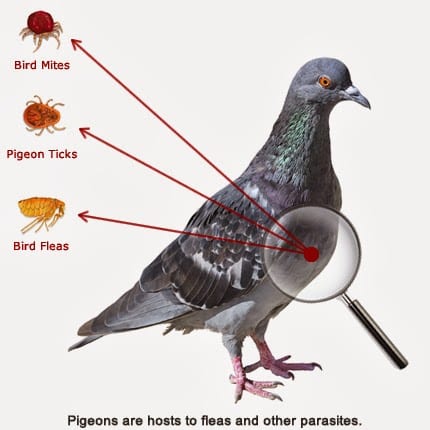
by Pigeon Patrol | Nov 5, 2020 | Animal Deterrent Products, Bird Deterrent Products, Bird Netting, Bird Spike, Bird Spikes, Columbidae, Doves, Pigeon Droppings, Pigeon Patrol's Services, Pigeon Spikes
Are There Any Myths About The Pigeon? Yes.
If you want to find out what the myths are about the pigeon, then keep on reading!
1. Pigeons All Look Pretty Much Alike
his is definitely a misconception about these ubiquitous birds. Pigeons are common in so many places around the world that they tend to blend into the scenery. But take a closer look and you’ll see a huge variety of colors and patterns among pigeons. In fact, there are dozens of distinct color variations, including red, white, blue-black and gray, according to the Cornell Laboratory of Ornithology.
Much of the variation in pigeon coloring is due to selective breeding throughout history by people who have collected pigeons for their feathers. This should come as no surprise since these animals have been cohabitating with humans for 5,000 to 10,000 years, often as pets, messengers or human sustenance.
2. Pigeons are secret spies
Despite sounding like part of a conspiracy theory, this pigeon myth is actually rooted in a measure of truth. Pigeons have been used by governments and militaries around the globe for centuries, and many pigeon activities have proved quite critical in espionage operations. For example, before the widespread use of satellite imagery, pigeons would be fitted with tiny cameras and flown over enemy territory on information-gathering exercises.
They’ve also been used extensively as messengers — the birds would carry critical notes between military installations even as late as World War II. That being said, it’s extremely unlikely that the pigeons you feed at the local park are working undercover for a foreign government.
3. Pigeons Can Fly Thousands of Miles Per Day
Based on the incredible flying abilities of pigeons, stories about their winged performance have been greatly inflated over the years. For example, pigeons have a remarkable ability to find their way home, but not from halfway around the world — as legend would have it. The truth is still impressive. Pigeons are able to navigate home across hundreds of miles using the sun, the Earth’s magnetic field and landmarks such as tall buildings.
There are also many tall tales about pigeons traveling more than a thousand miles in one day — sometimes many thousands. This is an exaggeration. The truth is that racing pigeons fly between 40 and 50 miles (64 and 80 kilometers) per hour, with the top performers covering a maximum of about 600 miles (966 kilometers) in a single day, according to the Solar Center at Stanford University. So while these stats are remarkable, pigeons are not the superheroes that many mythmakers would have you believe. Source
Pigeons can fly far, but not that far. Still, 600 miles in one day is pretty impressive.
4. Pigeons Are Warmongers
There are plenty of references to pigeons in modern society. People can be pigeon-toed or pigeon-holed, or even act as stool pigeons. If you’ve ever wondered why pigeon-themed parlance plays such a central role in human culture, look no further than your local playground or shopping center. These birds are everywhere.
Because pigeons thrive in man-made environments, they’ve become extremely common wherever there are people. In fact, pigeons are abundant in Europe, Asia and Africa, as well as throughout North America. In addition to being the subjects of legend and lore, these creatures are also the focus of a lot of misconceptions. Check out our list of the most common myths about pigeons, and perhaps you’ll learn a thing or two about our familiar feathered friends.
5. Pigeons and Doves Are Divine
Again, this myth is difficult to discuss rationally, but we felt we had to include it in the list since pigeons and doves (same family, different species) appear so often in scripture and the writings of the ancient world. Whether serving as sacrifice in Jewish tradition or as Noah’s messenger on the ark, pigeons and doves play a central role in the lore of the world’s religions.
Pigeons and doves also represent peace, purity, faith and fidelity in numerous cultures around the world. Why the birds hold such a sacred place in human societies is difficult to discern, but pigeons are no more or less likely than other animals to guide us to the hereafter. Pigeons have been associated with a variety of diseases, including histoplasmosis and cryptococcosis. Histoplasmosis is a disease caused by a fungus that grows in pigeon droppings. The fungus can also be found in bat droppings or in the soil, and is carried by the wind.
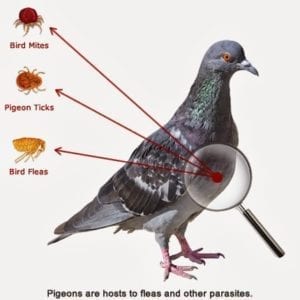
About Pigeon Patrol:
Pigeon Patrol Products & Services is the leading manufacturer and distributor of bird deterrent (control) products in Canada. Pigeon Patrol products have solved pest bird problems in industrial, commercial, and residential settings since 2000, by using safe and humane bird deterrents with only bird and animal friendly solutions. At Pigeon Patrol, we manufacture and offer a variety of bird deterrents, ranging from Ultra-flex Bird Spikes with UV protection, Bird Netting, 4-S Gel and the best Ultrasonic and audible sound devices on the market today.
Contact us at 1- 877– 4– NO-BIRD, (604) 585-9279 or visit our website at www.pigeonpatrol.ca
Bird Gone, Pigeon Gone, Seagull Gone, Pigeon problems, 1-877-4NO-BIRD, 4-S Gel, Bird Control, Pigeon Control, bird repellent,, sonic bird repellent, stainless steel , bird spikes Vancouver, Ultra Sonic Bird Control, Bird Netting, Canada bird deterrents, Pigeon Pests, B Gone Pigeon, Pigeon Patrol, pest controller, pest control operator, pest control technician, Pigeon Control Products, humane pigeon, pigeon deterrents, pigeon traps, Pigeon repellents, Sound & Laser Deterrents, wildlife control, raccoon, skunk, squirrel deterrent, De-Fence Spikes, Dragons Den, Canada bird spikes, Canada pigeon, pigeon control, pigeon patrol, pigeon. destroy pigeons, crow, starling, Pigeon Habitat, Pigeon identifications, pigeon myths
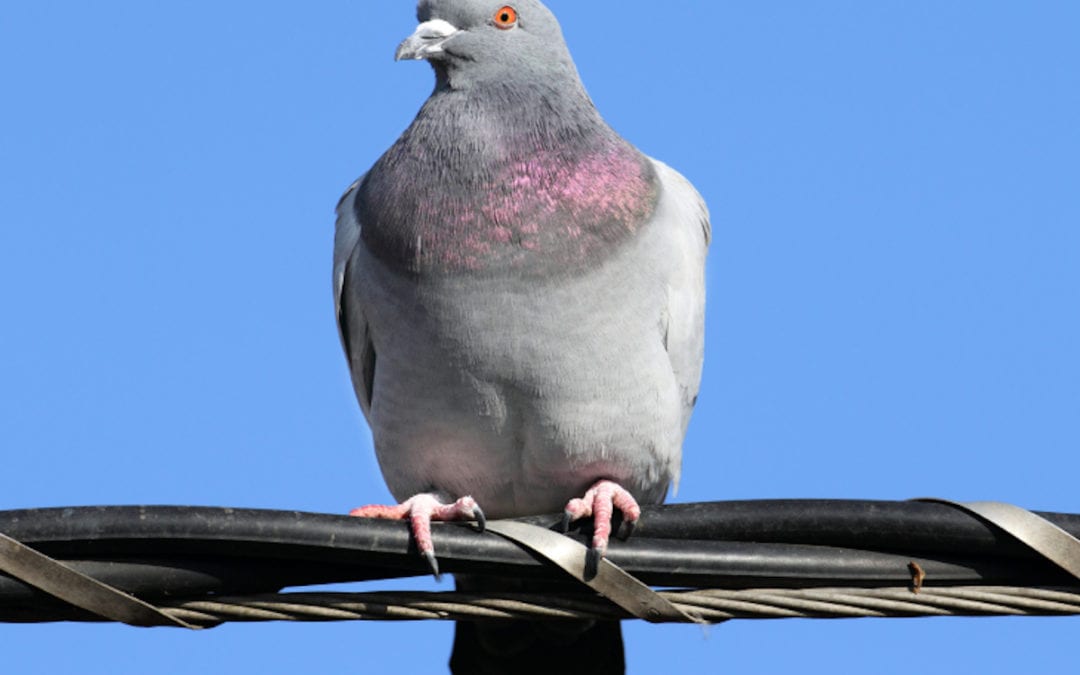
by Pigeon Patrol | Nov 4, 2020 | Animal Deterrent Products, Bird Deterrent Products, Bird Netting, Bird Spikes, Pigeon Control, Pigeon Droppings, Pigeon Patrol's Services
Do You Wanna Know How To Reduce The Numbers In Pigeons Roaming Around?
Keep on reading!
The need to reduce numbers in feral pigeon populations in urban areas has been the subject of intense debate for decades with town and city councils making little impact on the problem due to lack of investment and, in many cases, a reluctance to think laterally. Although the feral pigeon has been a common feature of urban life for the last 100 years there is no doubt that urban flocks are now growing faster than their numbers can be controlled. The reason for this unprecedented rise in feral pigeon numbers is due, almost exclusively, to the availability of food and the methods used to control the birds. Other factors such as the availability of good roosting and breeding facilities also play their part.
The feral pigeon is completely at home in urban environments, exploiting humans for food and using buildings for the purposes of roosting and breeding. This is because the feral pigeon is a descendent of the rock dove, a cliff-dwelling bird that was commonly found feeding and breeding along rocky coastlines prior to its mass exodus inland to make its home alongside man.

Pigeons (Rock Doves) in
their Natural Habitat
The reason that the rock dove chose to desert its natural habitat is the obvious availability of food combined with the optimum breeding and roosting potential offered by buildings, which resemble cliff faces. In its natural habitat the only real predator of the rock dove was the peregrine falcon, an extremely efficient predator that preyed on both pigeons and gull chicks.
In these natural environments flock size was restricted and maintained at levels dictated by the availability of natural food sources and the extent of predation in the area concerned. In urban environments, however, the picture is very different with man being the sole predator of the feral pigeon and food sources guaranteed.

Peregrine Falcon
Today the feral pigeon can be seen in virtually every area of the globe other than the two polar icecaps, exploiting man for food and his buildings for the purposes of roosting and breeding. Man has attempted to control the feral pigeon by using a variety of lethal controls, including poisons, narcotics, cage traps and shooting, and yet the pigeon has shrugged off all these attempts at population control and continued to live and breed in close association with man undeterred. Lethal controls have been complemented by an arsenal of deterrents, provided in an effort to deny or restrict roosting and perching opportunities (thereby reducing guano-related problems). Anti-roosting systems such as anti-roosting spikes have proved extremely effective at displacing pigeons from areas that pigeons roost and nest; but may not be a total solution as pigeons may simply move to other areas nearby.

Rifle Used for Pigeon Culling
So what other options are available to control and contain the problem? The answer to the question really lies in the source of the problem: available food and the means by which we currently control the birds. The use of lethal control as a means of controlling and reducing pigeon populations has been found to have no effect in terms of reducing pigeon flock size. Scientific research has even found that lethal controls can have the opposite effect, resulting in an increased flock size as a result of rejuvenation within the flock. Although we now have the science which proves that all attempts to reduce flock size by lethal means will be a wasted effort, the use of lethal control on pigeon populations is still extensive in the UK and many other countries worldwide. Why then are lethal controls used at all? Culling has been relied upon for decades by the pest control industry as a highly lucrative and revenue-rich service. If it were withdrawn as a control option many contractors would simply go out of business.

Pigeon Loft used for
Breeding Control
The only proven method of reducing pigeon flock size as part of an area-wide control system is to use a method pioneered by PiCAS International involving the use of artificial breeding facilities. This stand-alone method of control has been scientifically* proven to reduce pigeon flock size and is currently being employed throughout mainland Europe by councils and commercial organizations alike. The principle of a scheme using artificial breeding facilities is to provide a pigeon loft or dovecote in which feral pigeons can be encouraged to roost and breed and from which their eggs can be removed as laid and replaced with dummy eggs. This method of breeding control has been found to be extremely effective in reducing flock size and maintaining that reduction indefinitely
Whether a dovecote or pigeon loft is used the principle is the same – pigeons are encouraged to take up residence in the facility provided and as soon as breeding commences their eggs are removed as laid and substituted with dummy eggs. The hen bird will then continue to sit on the eggs for a period of between 18 and 25 days before realizing that the eggs will not hatch, at which time she will then abandon them. If eggs are removed without substituting with dummy eggs the hen bird will re-lay immediately and continue to re-lay each time her eggs are removed.
This may result in long-term health-related problems for the hen bird (such as a severe calcium deficiency) and as the goal is to maintain a small healthy flock of pigeons this is clearly not desirable.
The two types of artificial breeding facility available for use as a breeding control are very different in respect of both design and siting criteria, with a pigeon ‘loft’ normally provided on or possibly even within a building and a dovecote provided in an open space and at ground level. A pigeon loft would normally be provided by a property owner on a specific building or site in an effort to control breeding flocks of feral pigeons within that localized area. A dovecote would normally be provided in a green open space, such as a public park, where the scope of the facility would be the control of large feeding flocks of feral pigeons. In the case of a dovecote-based system a designated public feeding area would normally be provided adjacent to the dovecote in which the general public would be encouraged to feed pigeons, as the food would act to attract the birds to the dovecote facility.
The additional benefit of a designated feeding area, certainly where deliberate and persistent feeding of pigeons is identified as being the root cause of the problem, is that the facility will draw feeders away from their normal feeding areas in town and city centers and relocate them to green areas where pigeons can be better tolerated. Many councils will use the ‘carrot and stick’ approach when offering a system of this nature, providing feeders with legitimized areas in which to feed pigeons but large fines if they continue to feed outside the designated areas.
The main source of all pigeon-related problems in urban areas is deliberate and persistent over-feeding of pigeons by a small number of people who normally feed large quantities of high quality food 7 days a week. To a lesser extent the methods most commonly used to control pigeons (lethal controls) exacerbate and further entrench problems caused by overfeeding. The combination of overfeeding and the rejuvenation of pigeon flocks through the use of lethal controls has resulted in deeply entrenched problems in virtually every city in the Western world.
In some countries the feral pigeon has a religious significance and this fact has also acted to further embed the problem. Muslim, Hindu and Sikh cultures feed pigeons for religious reasons and although the feeding of pigeons for these reasons still continues in many UK towns and cities today, there is a view that the feeding of pigeons is the preserve of the older generation with younger generations taking little interest in the bird. In multi-racial cities like Leicester, for example, where the council embraces the concept of culling and where ethnic minority groups offer huge quantities of food to feral pigeon populations on a daily basis, feral pigeon flocks have grown to unsustainable proportions, creating deeply entrenched problems for property owners.

The problem has become so entrenched that several years ago PICAS International was called in to humanely remove nearly 2000 breeding pigeons and their young from 7 residential roof-spaces in council-owned properties in the city. This indicates the scale of the problem and confirms that citywide overfeeding of feral pigeons, combined with the over-use of culling, will only ever result in upwardly spiraling pigeon flock size.
For any urban pigeon control system to be effective there must not only be area-wide controls provided in the form of pigeon lofts and dovecotes with designated feeding areas, but also an acceptance by property owners that they must play their part. The only body that can be a catalyst for area-wide controls is a council, but if property owners fail to control pigeons on their own properties and allow entrenched roosting and breeding problems to occur or to continue any programme provided by the council will inevitably be compromised. Breeding controls can be astonishingly effective, but if property owners fail to exclude pigeons from their properties those same birds will continue to breed unchecked, further compounding the problem throughout the area. If breeding controls are provided in the form of lofts and dovecotes, however, and if both the local authority and property owners pull in the same direction, a vast majority of pigeons that are excluded during proofing programmes will end up in loft or dovecote facilities where their breeding can be controlled.
The average property owner can provide an extremely effective pigeon control system by installing deterrents in areas where roosting, breeding or perching exists and, if the problem justifies it, by providing an artificial breeding facility in the form of a pigeon loft. The combination of these two controls on one building or site will not only reduce the incidence of soiling in sensitive areas, but will also reduce flock size year on year, resulting in a small manageable flock of pigeons. This must be the goal of every property owner based on the fact that it is simply impossible to eradicate the feral pigeon completely. Although deterrents cannot be considered to be cheap, if the correct choice is made and if the product is sourced and installed by the property owner concerned at least 20-30 years’ protection should be afforded. The correct choice of deterrents is key, with some anti-perching products such as repellent gel only providing between 3 and 12 months’ protection and bird exclusion products like nylon bird netting only offering 5-10 years’ protection. The anti-roosting spike will, however, offer the property owner up to 30 years’ protection without the need to maintain or replace the product, making it an economical and aesthetically pleasing choice.
When a council chooses to provide an area-wide control system for feral pigeons (and very few UK-based councils do provide area-wide systems) expert guidance is critically important. Control systems that are designed to resolve entrenched pigeon-related problems are complex, particularly if the root cause of the problem is persistent and deliberate feeding by the general public. Many UK-based councils have attempted to address the problem by using hard-hitting and aggressive campaigns threatening pigeon feeders with large fines or imprisonment and often undertaking deeply unpopular culling operations at the same time. In each and every case these campaigns have failed due to the fact that the council concerned has failed to understand the underlying reason why people feed pigeons. The ‘problem’ cannot be dealt with as a littering offense or an anti-social act; it must be dealt with by education and persuasion rather than by threats and legislation.
If public feeding is identified to be the cause of the problem a system of controls must be provided that take the impact of persistent feeding into consideration at the same time as identifying large-scale pigeon roosts and closing them down. The principle of an effective area-wide control system using dovecote-based artificial breeding facilities is to provide the general public with an area specifically set aside for the purpose of pigeon feeding and to confirm that feeding is allowed in this area, but nowhere else.
A high-quality public education campaign must be launched confirming what the council is trying to achieve and why. Once a dovecote and designated feeding area facility has been provided in a central and accessible area the task of encouraging the feral pigeon population to feed on the site and take up residence in the dovecote is the next step.
Where pigeon-related problems exist as a result of public feeding the public education campaign will guide feeders to use the dovecote site for this purpose and as a result pigeons will follow, thereby resolving problems for property owners. Where breeding or roosting-related problems exist, however, it will be necessary to exclude pigeons from these areas with physical deterrents or to provide a loft-based artificial breeding facility or a combination of both.
One of the main reasons that area-wide control systems break down is the failure of councils to identify large-scale overnight roosts and force property owners to close them down and exclude pigeons. Councils have the power to force any property owner to undertake works to exclude pigeons from their property or, if the property owner refuses, to undertake those works itself and then bill the property owner. Even in light of these far-ranging powers, however, councils are deeply reluctant to take this action even though it may make render the area-wide control system a failure.
Of course, it is not always advisable or desirable to exclude pigeons from an existing roosting or breeding site, particularly if there is no area-wide control system in place to provide alternative accommodation. This does not stop property owners and companies like Network Rail excluding tens of thousands of pigeons from buildings and roosting sites under railway bridges every year. These excluded birds simply become someone else’s problem and the cycle begins again. This is why it is so important to provide a system of sustainable controls, such as the use of artificial breeding facilities, that will continue to control both breeding and (in the case of dovecote-based systems) feeding indefinitely, with little or no cost involved other than the initial outlay. These systems are popular with the general public and property owners alike as they humanely relocate pigeons to areas where they can be tolerated, accommodated and controlled without the need to resort to unpopular, invasive and unsustainable controls such as culling.
About Pigeon Patrol:
Pigeon Patrol Products & Services is the leading manufacturer and distributor of bird deterrent (control) products in Canada. Pigeon Patrol products have solved pest bird problems in industrial, commercial, and residential settings since 2000, by using safe and humane bird deterrents with only bird and animal friendly solutions. At Pigeon Patrol, we manufacture and offer a variety of bird deterrents, ranging from Ultra-flex Bird Spikes with UV protection, Bird Netting, 4-S Gel and the best Ultrasonic and audible sound devices on the market today.
Contact us at 1- 877– 4– NO-BIRD, (604) 585-9279 or visit our website at www.pigeonpatrol.ca
Bird Gone, Pigeon Gone, Seagull Gone, Pigeon problems, 1-877-4NO-BIRD, 4-S Gel, Bird Control, Pigeon Control, bird repellent,, sonic bird repellent, stainless steel , bird spikes Vancouver, Ultra Sonic Bird Control, Bird Netting, Canada bird deterrents, Pigeon Pests, B Gone Pigeon, Pigeon Patrol, pest controller, pest control operator, pest control technician, Pigeon Control Products, humane pigeon, pigeon deterrents, pigeon traps, Pigeon repellents, Sound & Laser Deterrents, wildlife control, raccoon, skunk, squirrel deterrent, De-Fence Spikes, Dragons Den, Canada bird spikes, Canada pigeon, pigeon control, pigeon patrol, pigeon. Kill pigeons, crow, starling, Pigeon Habitat, Pigeon identifications, reducing pigeons
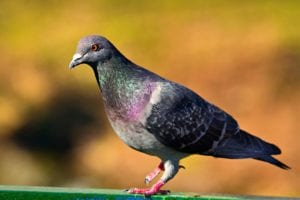
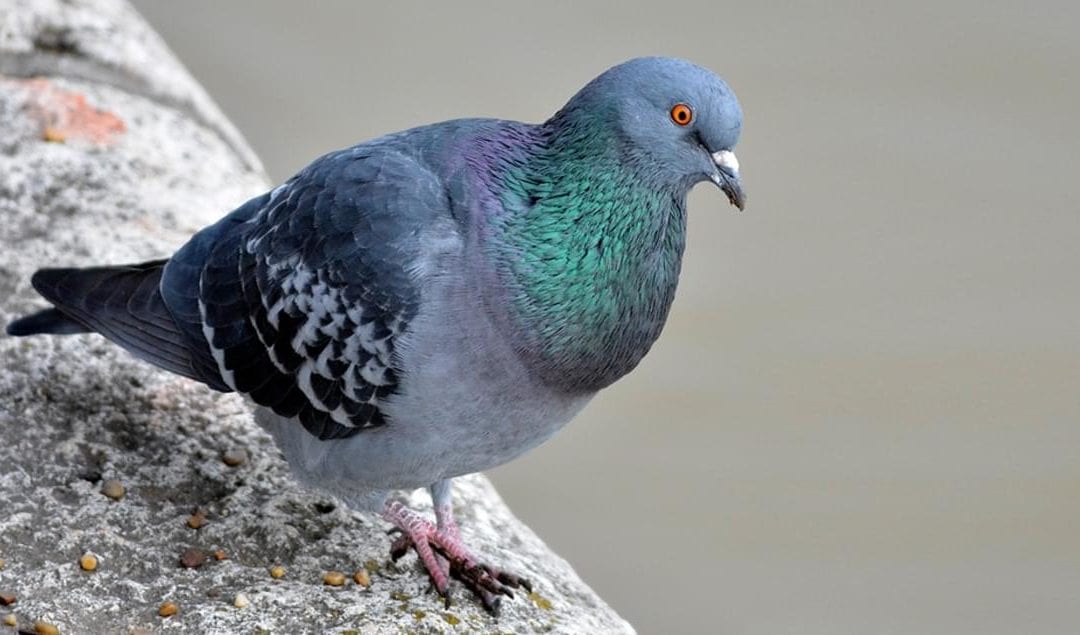
by Pigeon Patrol | Oct 26, 2020 | Animal Deterrent Products, Bird Deterrent Products, Bird Netting, Bird Spikes, Pigeon Control, Pigeon Spikes
What To Do With Annoying Pigeons
When pigeon flocks grow too large, use these humane methods to control their numbers
From a pigeon’s perspective, city living can’t be beat. Food and water are readily available. Predators are rare. Plus, there’s plenty of free housing. Pigeons find our window ledges, rooftops, bridges, and warehouses to be ideal substitutes for the natural ledges in cliff sides that they have always used as roosting, nesting, and sheltering sites.
Steps to Solve Pigeon Problems
You may just need one or a combination of all techniques, depending on the size of the pigeon population you’re dealing with.
Spikes & Nettings
The bird spike is a simple device used to prevent birds from perching or roosting on flat surfaces. Spike systems consist of thin, mildly flexible rods set in a base in multiple rows at varying angles. Pigeon spikes are not sharp and will not harm birds in any way; pigeon spikes are always dull and are completely safe and humane. Contact with the spikes is uncomfortable but never painful or dangerous. The sole purpose of the spikes is to block the birds’ feet from reaching the flat surface; without a foothold, the birds can’t roost. You can use bird spikes to protect your property with a clear conscience.
Bird control spikes are easy to understand, install, and maintain. No special tools are needed, no complicated assembly is involved, and making certain that the spikes don’t become clogged with leaves or other debris is the only maintenance required. In addition, no other bird control device is as cost-effective when measured in money and time; anti-bird spikes don’t require costly installation upfront and continue to function for a long, long time. Bird spikes are honestly a great way to keep birds away.
Anti-bird spikes offer the following advantages:
They Are Safe
Impaling birds is not the purpose of the spikes. Bird spikes have harmless, dull tips, and the spikes themselves are just a bit bendy. When birds try to land, they get a gentle, uncomfortable prod in their undercarriage, and their feet are unable to reach the surface.
Effective
Many bird control experts agree that bird spikes are 100% effective at deterring roosting birds when installed correctly. Spikes work by preventing birds from roosting, and they work every time. Rain or shine, day or night, today, tomorrow, and next year, spikes keep birds away.
Long Lifetime
Bird control spikes offer low-maintenance protection for years. High-quality strips and spikes are constructed to withstand constant exposure to harsh, changing weather conditions.
Unobstructive
Strips don’t cause any interference with electrical or communication transmissions, and, especially from a distance, they won’t significantly interfere with the look of your property. The only thing you will notice is the absence of birds.
Easy To Use
Spikes come preassembled in 2-foot strips that are notched for a tool-free breakdown. A piped line of adhesive down the bottom of the strip gives you a quick and permanent installation, or, for temporary installation, strips can be nailed, screwed, or even zip-tied down. Plus, anyone can do it; installing bird spikes is well within the skills of any competent DIYer.
Stop Feeding The Pigeons (intentionally or not)
Most conflicts with pigeons can be tied at one point or another to feeding, intentionally or otherwise.
Pigeons get fed plenty of handouts and garbage, but there are also well-intentioned pigeon lovers who regularly feed the birds. This does the pigeons more harm than good as the pigeons begin to gather in large numbers, often leading to inhumane and ineffective attempts to reduce their numbers.
When such troubles arise, the best thing for the birds is to reduce feeding gradually over several weeks. The flock will gradually disperse until the remaining number of birds matches what the area can naturally support.
Unintentional Food Sources
Even when not feeding on purpose, we humans are messy, leaving leftovers and dropped crumbs everywhere. Pigeons hang around town squares, public parks, and other trafficked areas to help themselves to what we leave behind, especially when convenient roosting and nesting sites are nearby. To discourage pigeons from gathering, food attractants need to be cleaned up regularly.
In suburban neighborhoods, too, homeowners may mistakenly feed pigeons or they may be providing food for pigeons inadvertently when feeding their backyard birds by tossing seed on the ground, rather than putting it in birdfeeders. To discourage pigeons visiting your yard, change the type, amount, and timing of feeding. If most of the pigeons fail to move elsewhere, you’ll need to stop feeding all birds for a couple weeks. (Don’t worry; the birds won’t starve.) When you resume feeding, only put out seed in birdfeeders and keep the ground below them cleaned up.
Prevent Roosting and Nesting
Pigeons look for flat surfaces for roosting and nesting. Encourage them to do these things elsewhere by making flat surfaces unavailable to them. With the correct application of the right product, roosting structures can be rendered virtually pigeon-free.
Follow these tips and steps to get rid of the annoying pigeons
source
About Pigeon Patrol:
Pigeon Patrol Products & Services is the leading manufacturer and distributor of bird deterrent (control) products in Canada. Pigeon Patrol products have solved pest bird problems in industrial, commercial, and residential settings since 2000, by using safe and humane bird deterrents with only bird and animal friendly solutions. At Pigeon Patrol, we manufacture and offer a variety of bird deterrents, ranging from Ultra-flex Bird Spikes with UV protection, Bird Netting, 4-S Gel and the best Ultrasonic and audible sound devices on the market today.
Contact us at 1- 877– 4– NO-BIRD, (604) 585-9279 or visit our website at www.pigeonpatrol.ca
Bird Gone, Pigeon Gone, Seagull Gone, Pigeon problems, pigeon spikes, 1-877-4NO-BIRD, 4-S Gel, Bird Control, Pigeon Control, bird repellent, Bird Spikes, bird law sonic bird repellent, stainless steel bird spikes, bird spikes Vancouver, Ultra Sonic Bird Control, Bird Netting, Plastic Bird Spikes, Canada bird spike deterrents, Pigeon Pests, B Gone Pigeon, annoying pigeons, Pigeon Patrol, annoying pigeons pigeon family pest controller, pest control operator, Bird law pest control technician, Pigeon Control Products, humane pigeon spikes,pigeon droppings pigeon deterrents, type of birds, pigeon traps, Pigeon repellents, Sound & Laser Deterrents, wildlife control, raccoon, skunk, squirrel deterrent, De-Fence Spikes, Dragons Den, Canada bird spikes, Pigeon behavior ,Canada pigeon, pigeon control, pigeon patrol, pigeon. Kill pigeons, crow, starling, Pigeon Habitat, annoying pigeons
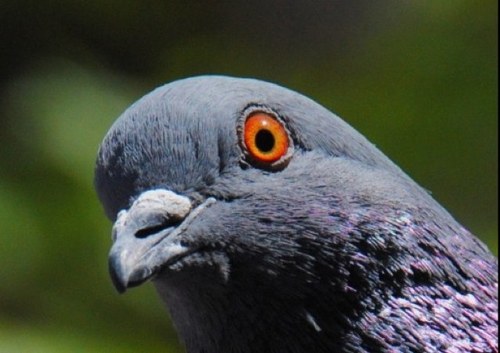
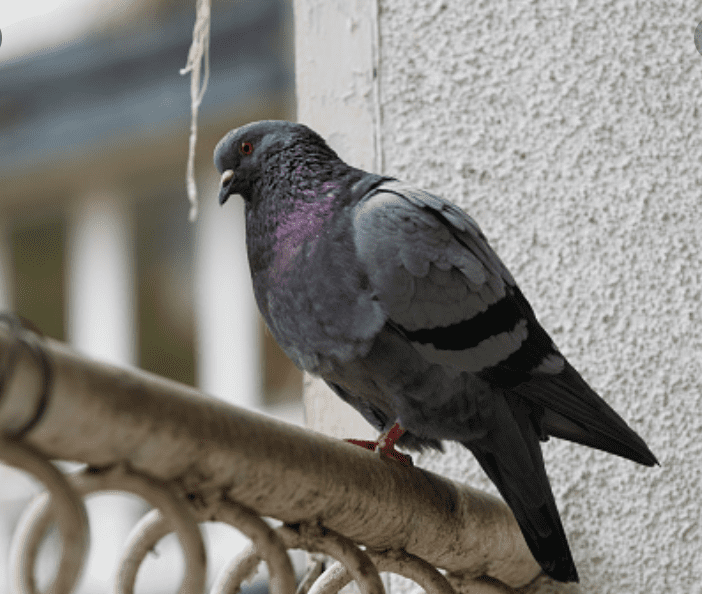
by Pigeon Patrol | Oct 26, 2020 | Animal Deterrent Products, Bird Deterrent Products, Bird Netting, Bird Spikes
Time to Expel The Nuisance (Pigeons)
Expel the pigeons : Many bird lovers like to attract beautiful little songbirds onto their balcony using bird feeders, helping to keep the feathered visitors fed during the winter while enjoying the chance to watch them at the same time. Pigeons, however, are rarely such a welcome guest as their invasion has consequences: damaged plants and traces of excrement as far as the eye can see – not how a cosy open-air oasis is meant to look. Their collective cooing can also really get on your nerves. Some of the birds may even carry diseases – so there are plenty of reasons why you are better off banishing pigeons from your balcony if their visits get out of control.
Visual measures to get pigeons off your balcony
Try to drive the birds away using various visual techniques. The birds are generally thought to be quite clever and fearless, so visual measures will only work in the short term. You should therefore regularly move the pigeon scaring device to a new position. This confuses the birds.
- Fake birds. Who is afraid of the vicious raven? Pigeons. Place a plastic version of the pigeon’s enemy on the balcony to scare the birds off. This also works with hawks, owls and buzzards. Always remember to reposition the pigeon scaring device from time to time. If you have an outdoor cat or a dog, even better. The birds like to keep a safe distance from pets and will therefore stay well away from your balcony
- Hang CDs. A cool retro look, with a purpose. Thread the CDs onto a fishing line. When you hang the mobile on your balcony, if all goes to plan then the reflective surfaces moving in the wind will scare the pigeons and they will fly away
- Aluminium foil. Similar principle to the CDs. Cut long strips of aluminium foil and hang them on the balcony. The fluttering strips reflecting the light will confuse the pests
- Glitter balls. You can also create light reflections to scare away the birds using shiny balls made from glass or plastic. Attached to a wooden stick, these useful defence systems can simply be stuck in a flower bed or plant pot
- Windmills. These contraptions make uncontrolled movements and this scares away the pigeons.
Acoustic and haptic systems to get pigeons off your balcony
Acoustic defence systems are usually only effective for a limited time. Pigeons quickly get used to noises and are then no longer disturbed by them. You should therefore constantly vary the tone to ensure that this method is successful. Dog barks, cries from birds of prey or loud bangs, which sound like they are random, are good examples of effective noises. However, it’s likely that your neighbours will also not particularly enjoy these noises – this measure must not degenerate into a noise nuisance.
Haptic systems offer more promise.
- Nets. Although these do ruin the view, the upside is that pigeons will no longer be able to rest on your balcony.
- Spikes. These are not just found on sports shoes worn by athletes – they are also an effective pigeon defence system. You can buy spikes in DIY shops and attach them to your balcony, preventing the birds from landing. The disadvantage is that your balcony no longer looks so nice. You can now also get spike borders, which are made from plastic. These can be attached to your balcony railings – if don’t mind the slightly military-like view.
Removing pigeon nests from your balcony
If pigeons start to nest on your balcony, you should remove the nests quickly – and always wear gloves and a face mask when doing so. Otherwise, a whole clan could settle on your balcony and it will become more and more difficult to get rid of them. It’s tricky if the birds are already breeding. In this case, you should seek help from a professional. Contact us today!
Protecting your birdhouses from pigeons
Back to the issue of birdhouses: these shelters intended for members of the tit family and other small birds are also popular with pigeons, who steal the food away from the smaller birds during the winter. You should therefore protect the source of food from unwelcome visitors. All you need to do is to run a piece of string or wire through the middle of the opening to the house. The small birds will still be able to get into the house, but the entrance will be blocked to pigeons. Hanging bird-feeder rings do not generally need extra protection because pigeons are too big to perch on them and feed.
source
About Pigeon Patrol:
Pigeon Patrol Products & Services is the leading manufacturer and distributor of bird deterrent (control) products in Canada. Pigeon Patrol products have solved pest bird problems in industrial, commercial, and residential settings since 2000, by using safe and humane bird deterrents with only bird and animal friendly solutions. At Pigeon Patrol, we manufacture and offer a variety of bird deterrents, ranging from Ultra-flex Bird Spikes with UV protection, Bird Netting, 4-S Gel and the best Ultrasonic and audible sound devices on the market today.
Contact us at 1- 877– 4– NO-BIRD, (604) 585-9279 or visit our website at www.pigeonpatrol.ca
Bird Gone, Pigeon Gone, Seagull Gone, Pigeon problems, pigeon spikes, 1-877-4NO-BIRD, 4-S Gel, Bird Control, Pigeon Control, bird repellent, Bird Spikes, bird law sonic bird repellent, stainless steel bird spikes, bird spikes Vancouver, Ultra Sonic Bird Control, Bird Netting, Plastic Bird Spikes, Canada bird spike deterrents, Pigeon Pests, B Gone Pigeon, Pigeon Patrol, pigeon family pest controller, pest control operator, Bird law pest control technician, Pigeon Control Products, humane pigeon spikes, pigeon deterrents, type of birds, pigeon traps, Pigeon repellents, Sound & Laser Deterrents, wildlife control, raccoon, skunk, squirrel deterrent, De-Fence Spikes, Dragons Den, Canada bird spikes, Pigeon behavior ,Canada pigeon, pigeon control, pigeon patrol, pigeon. Kill pigeons, crow, starling, Pigeon Habitat, Expel pigeons










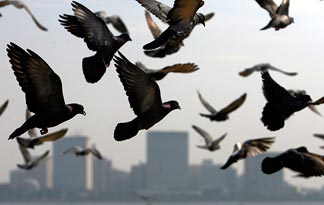


 Pigeons (Rock Doves) in
Pigeons (Rock Doves) in Peregrine Falcon
Peregrine Falcon
 Rifle Used for Pigeon Culling
Rifle Used for Pigeon Culling









